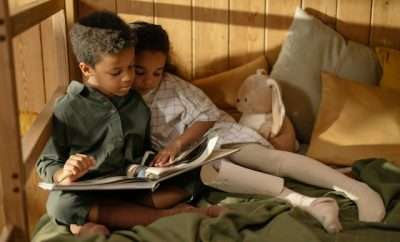
7 Tips for Potty Training Your Special Needs Child
7 Tips for Potty Training Your Special Needs Child
Potty training is an important milestone, but it can also be a challenge. Training a child to use the toilet requires patience and understanding. It also requires the right approach that accounts for your child’s personality. If you have a child with special needs, you may need to customize or change your approach. These seven tips can help you navigate the potty training journey with your special needs child.
1. Start at the Right Time
Knowing when to potty train a special needs child requires observation, patience, and understanding of your child’s individual development and readiness cues. While there is no one-size-fits-all answer, you can watch for signs. These signs include physical, cognitive, emotional, developmental, and social readiness signs. Physical readiness includes sitting up and mobility skills. Your child may be ready when they demonstrate an understanding of basic concepts related to toileting, such as recognizing the sensation of needing to go, understanding simple instructions, or expressing their needs through words, gestures, or communication devices.
2. Create a Consistent Routine
You should start by establishing a consistent potty routine to help your child understand what is expected. Take them to the bathroom at regular intervals. After meals or before bedtime are great times to start training. Your child should sit on the toilet even if they don’t need to go. Consistency in timing helps your child anticipate when it’s time to use the toilet. Make the bathroom environment comfortable and inviting for your child. Use a child-sized potty chair or toilet seat adapter, provide supportive seating, and ensure adequate lighting and ventilation.
3. Use Visual Aids
Visual aids can be helpful for special needs children who respond well to visual cues. You can use pictures, charts, or videos. These visual aids can teach them about using the toilet and the steps involved in the process. For special needs children who may struggle with verbal communication or comprehension, visual aids offer a non-verbal means of understanding and following instructions. By empowering them to see the steps involved in using the toilet, visual aids promote independence and confidence in managing their toileting needs.
4. Offer Positive Reinforcement
Many children respond positively to praise and rewards. You can use rewards to motivate your child to use the potty. Parents should offer plenty of praise and encouragement when the child makes progress. Many parents use stickers, small treats, or special privileges as rewards for successful trips to the toilet. Keeping track of positive progress on a chart can help your child stay motivated.
5. Be Patient
Potty training takes time. Children with special needs may need more time and accommodations. It is understandable that you will feel frustrated at times. If you’re feeling frustrated, take a step back and give yourself a break. It’s okay to take some time off before tackling potty training again. Celebrate small victories and remain supportive throughout the process.
6. Seek Professional Help
A professional consultant specializes in potty training special needs children. These experts have experience working with special needs children. A consultant can provide personalized guidance and strategies. They also can provide support tailored to your child’s unique needs. This extra support can make the potty training process more successful.
7. Stay Consistent and Persistent
Consistency is key to successful potty training. You should stick to your routine, expectations, and strategies. There will be setbacks and challenges, but consistency can help you overcome them. Parents should remain persistent and committed to helping their child develop these skills. With a positive attitude and persistence, you can help your child become more independent.
Conclusion
Potty training a special needs child requires time, patience, and understanding. By starting at the right time and creating a consistent routine, you can set your child up for success. Visual aids are a great tool for non-verbal children. Positive reinforcement and rewards can help your child stay motivated. A potty training consultant can help your child achieve success in this important milestone. Remember that every child is different and unique. With love, support, and dedication, you can help your special needs child master potty training.














